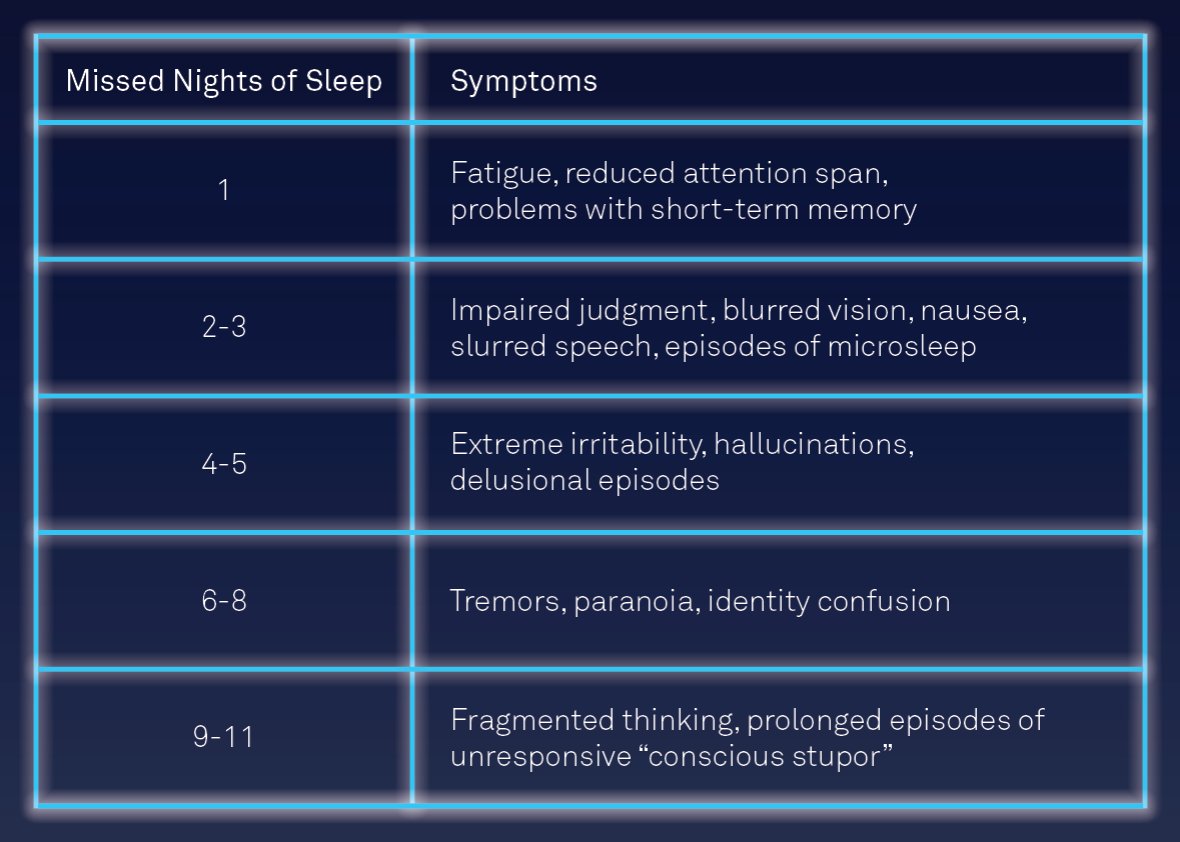
Why We Need Our ZZZs
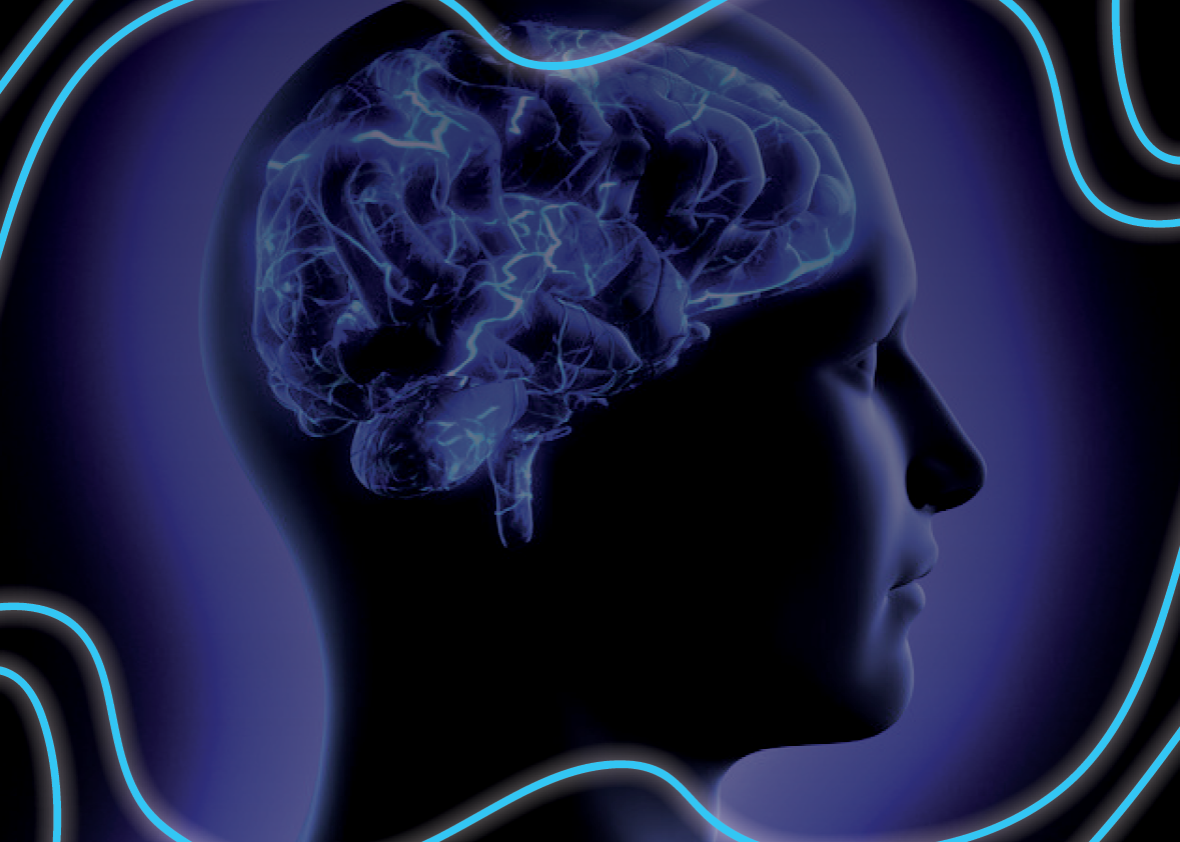
With so much to get done, sleep seems like the ultimate waste of time. Why spend hours sacked out in unproductive slumber? Come to think of it, what’s the evolutionary advantage to spending a third of our lives in a totally vulnerable state? On the African savannah, that would have been like inviting the lions to dinner.
The answer is, sleep is a remarkably active and critical part of our lives. It may look like we’re doing nothing while we snooze, but that couldn’t be further from the truth.
What Happens When We Sleep
When we slide into unconsciousness, a complicated process is initiated. Scientists divide sleep into stages, which are recognizable by tracking brain waves. These stages are repeated as many as five times during a typical night. The amount of time spent in each stage of sleep varies, with more deep sleep taking place earlier in the night and more “dreaming”—or REM—sleep in the second half of the night.
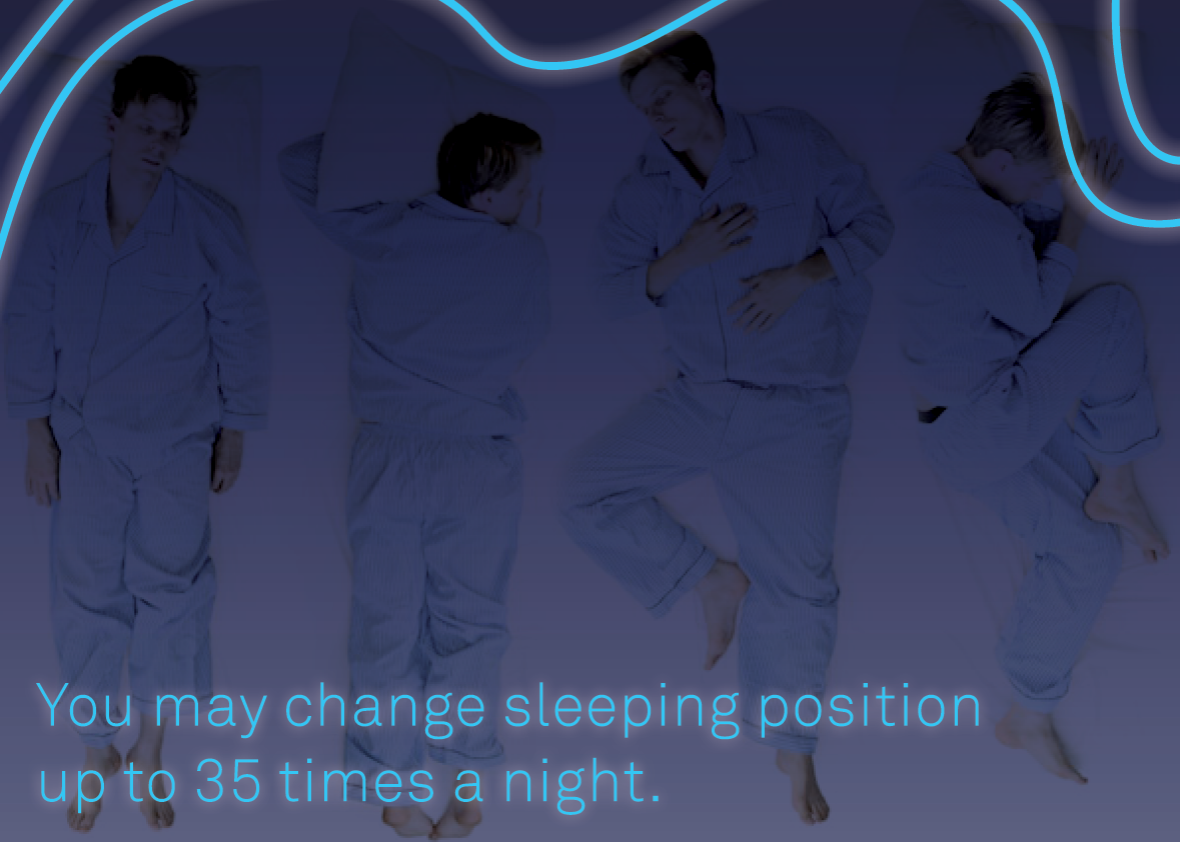
Source: The Wall Street Journal
Stage 1: Light sleep, during which you can be easily woken up by a car horn or a light being turned on. Some people experience sudden muscle contractions preceded by a sensation of falling.
Stage 2: Slightly deeper sleep. Your muscles relax; your heart rate and breathing slow; your body temperature drops.
Stage 3: Deep or “delta-wave” sleep. Heart rate and blood pressure drop. It’s very hard to wake up and if you do, you’ll be out of it and confused for at least a few minutes. There is no eye movement or muscle activity. Some people may walk or talk in their sleep; children may experience bedwetting or night terrors.
Stage 4: R.E.M. (Rapid Eye Movement). Breathing is shallow; eyes jerk rapidly; brain waves increase to waking levels. Dreams occur during this stage and your muscles are temporarily paralyzed so you won’t physically act on them.
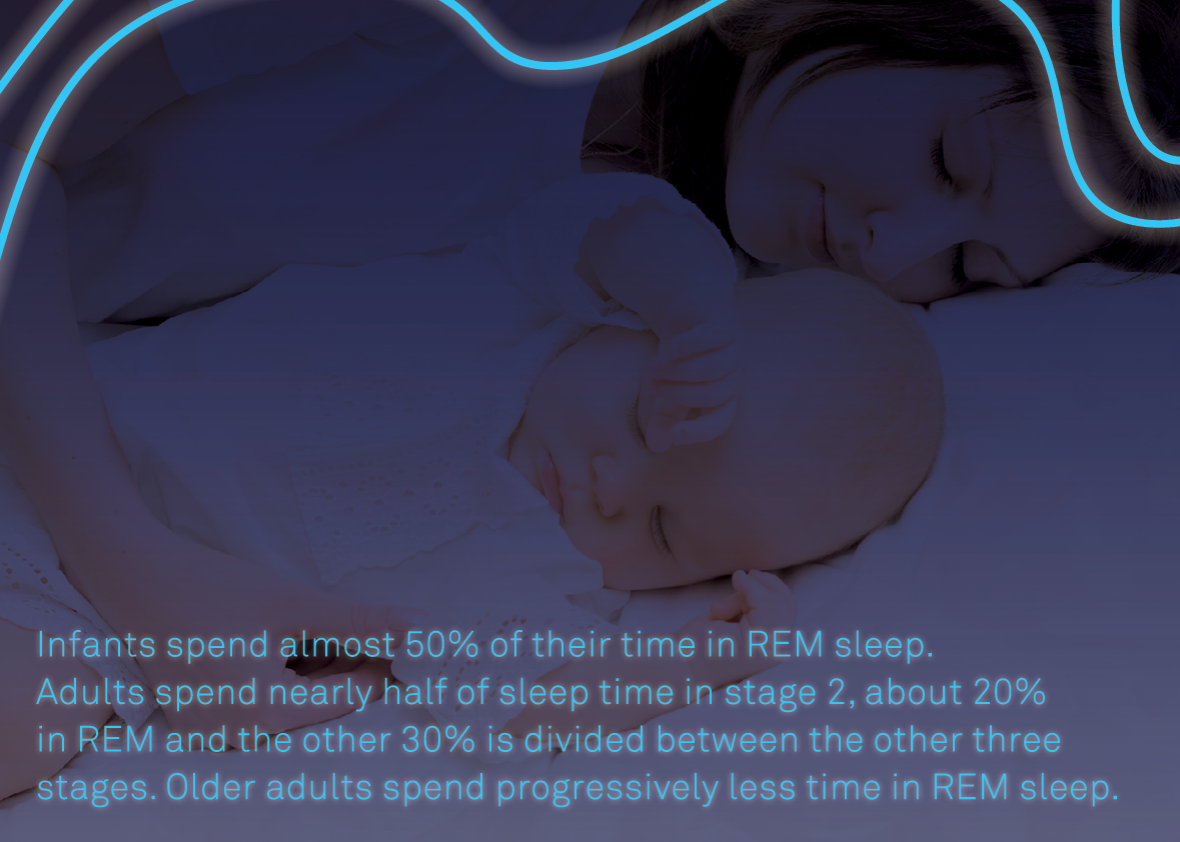
Source: Dublin City University study
Sleep Matters
But why does all this matter? What’s the purpose of sleep, anyway? Scientists don’t agree on an answer, but they have several theories.
- Adaptive Theory: Sleep improves an animal's likelihood of survival. A mouse that’s evolved a diurnal sleep pattern has a better chance against nocturnal predators like owls and cats.
- Energy Conservation Theory: During waking hours, the body is in a catabolic state: Resources are depleted as more oxygen and food are used for energy than are conserved. During sleep, we move into an anabolic state in which body temperature drops, requiring less energy to maintain. Interestingly, fast-moving animals with high metabolisms sleep more (lions: 20 hours per day) than those that burn calories more slowly (giraffes: 5 hours)—likely saving energy for sprints.
- Restorative Theory: Certain physiological activities associated with cell repair and growth are greatest during sleep, and the levels of some agents that fight disease are believed to rise during sleep and drop when we are awake. Our heart rates drop and tissue breakdown decreases, allowing our organs and waste filtration system to rest.
- Programming-Reprogramming Theory: During R.E.M. sleep, a process called consolidation may allow you to lock in memories or "practice" skills learned while you were awake. Unimportant information can be erased. This explains why infants, who are acquiring information at a rate faster than at any other point during life, also sleep more than at any other time.
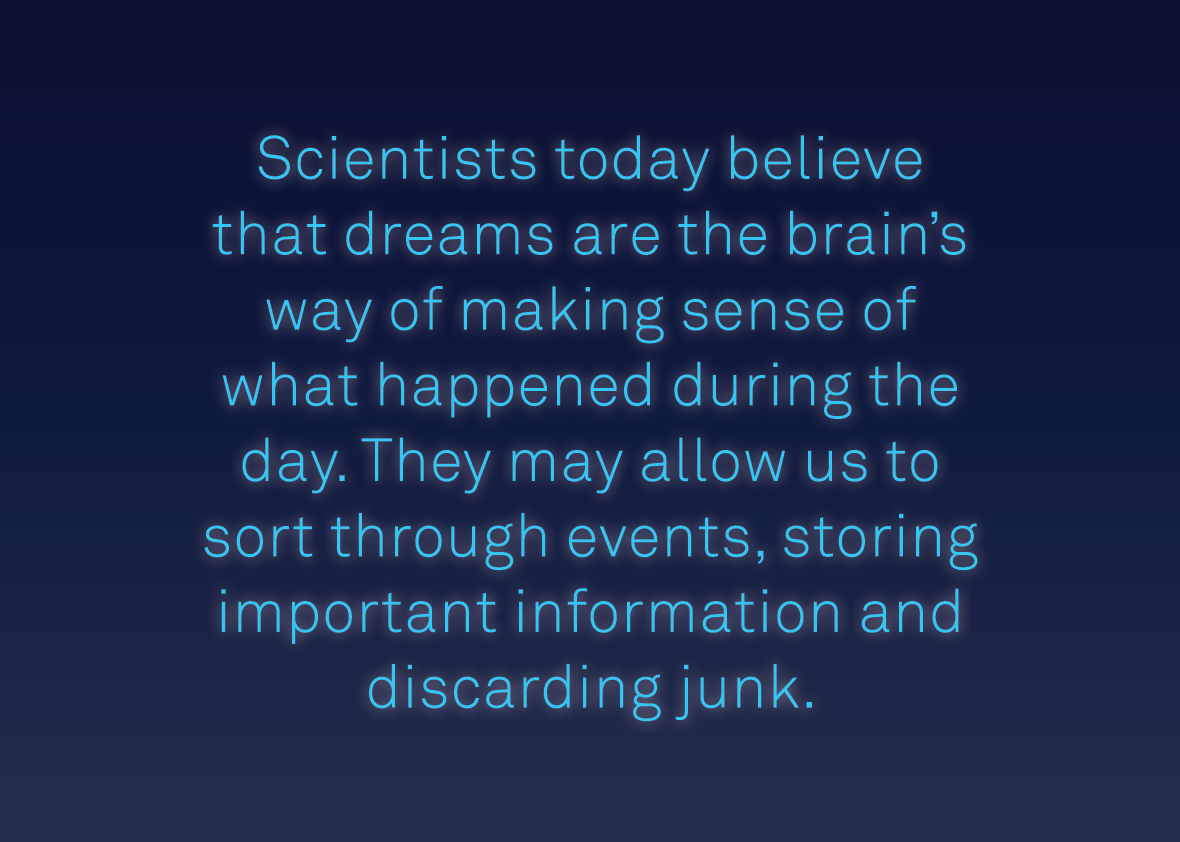
Counting Sleep
Regardless of which theory they back, scientists agree on two key points: 1) Sleep is essential to our mental, emotional and physical wellbeing and 2) we aren’t getting enough of it. Statistics from the Centers for Disease Control (CDC) show that 35 percent of Americans regularly get less than the recommended 7 hours of sleep, and 30 percent are trying to manage on 6 hours or less.
Here’s why that matters: Mounting evidence shows that lack of sleep undermines our ability to pay attention, learn and synthesize information and think clearly in weighing options and making decisions. Unfortunately, says University of Pennsylvania sleep researcher and professor of behavioral health Orfeu Buxton, we don’t necessarily realize when lack of sleep is affecting our decision-making. “The longer you go with less than optimum sleep,” he says, “the worse you’re able to judge your level of impairment.”
This can negatively affect our performance at work, our relationships, our safety while driving…the list goes on and on. But even more frightening is that sleep loss has been found to increase the risk of long-term health issues, including heart disease, stroke, cancer and diabetes. Over the past few years, researchers have found that sleep deprivation can affect glucose metabolism, making people more insulin resistant and less glucose tolerant. Buxton says. “We can show that in the space of a week or two of running on low sleep, people show blood sugar levels after meals that are in the pre-diabetic range.”
The Takeaway
The consequences of skimping on sleep can be devastating. But the benefits of getting sufficient sleep are enormous and there are many simple ways to improve both the quantity and quality of our nightly ZZZs. In the words of Nathaniel Watson, MD, president of the American Society of Sleep Medicine*, “It’s a challenge in our busy lives to prioritize sleep and make the changes needed to protect it. But see how it feels to go through your day invigorated and alert rather than struggling, and you’ll be glad you did.”
Deprivation by the Numbers
- Among workers over age 30 who report not getting adequate sleep, almost 75 percent say that sleepiness affects their work, according to the National Sleep Foundation.
- Calculations by Harvard Medical School show that sleep deprivation costs U.S. companies as much as $63.2 billion in lost productivity per year.
- The Institute of Medicine estimates that one out of five auto accidents in the U.S. results from drowsy driving.
- School children who get Cs, Ds and Fs have been shown to sleep an average of 25 minutes less and go to bed 40 minutes later than A and B students, according to a widely cited study on the topic.

